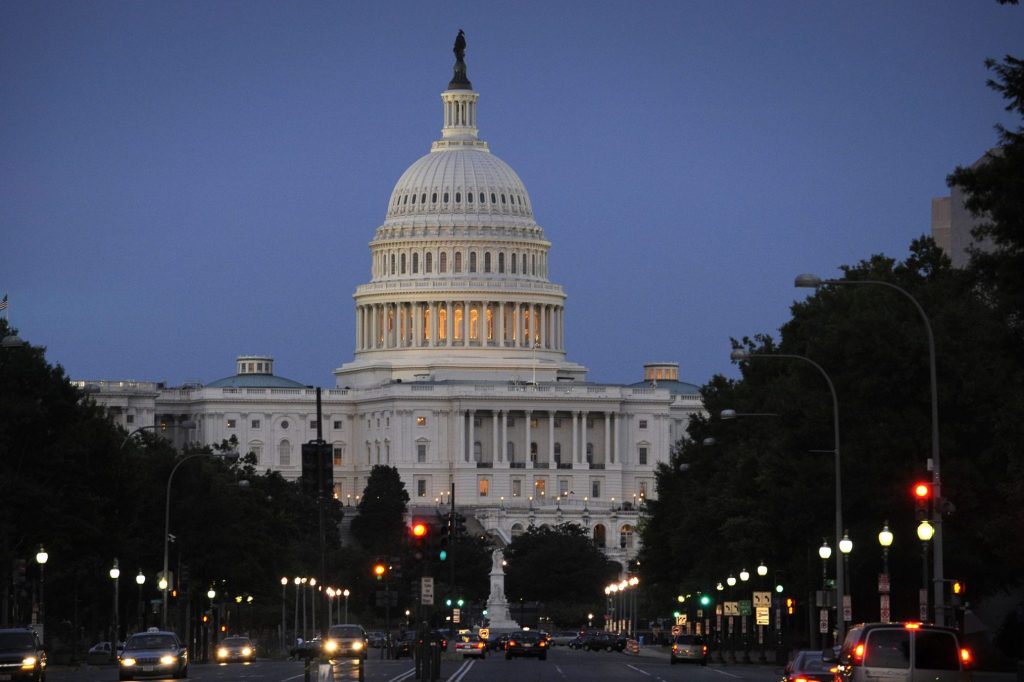
Leading U.S. travel industry groups called for an additional $600 billion in federal aid and other provisions late last week, two weeks after the $2 trillion CARES Act relief package was signed into law.
The U.S. travel industry wants Congress to provide further relief provisions like an additional $600 billion to the paycheck protection program and extend the program through the end of 2020 instead of its current June 30 expiration date. Industry groups also want to increase the Small Business Administration loan amount maximum to equate to eight times a business’s entire monthly expenses instead of the current 250 percent cap on a borrower’s average monthly payroll.
Industry groups like the American Hotel & Lodging Association and the U.S. Travel Association say the new policies are needed to account for what is going to be a longer recovery than expected while the CARES Act was being drafted.
Get the Latest on Coronavirus and the Travel Industry on Skift’s Liveblog
“The timeline is critically important because it determines if someone would decide whether to take out the loan,” AHLA CEO Chip Rogers said. “We’ve talked to a number of members of Congress, and, at least the ones we’re talking to, understand the hotel industry will not be back by June 30.”
Rogers declined to elaborate which members of Congress shared this sentiment, but he said they were “House and Senate leadership along with leadership in the committees where these legislation changes will most likely take place.” The hotel industry may have support in Washington today, but there is the question of much longer the receptive audience will last.
Cash is King
While individual operators may be struggling, major hotel companies with which they do business like Accor and Hilton have strong balance sheets with access to millions, if not billions, of dollars in cash or credit. But analysts say that doesn’t mean the capital should be deployed in the short-term given the uncertainty of the coronavirus crisis.
“A lot of the cash companies have tapped are credit lines. It’s not necessarily their money. It’s borrowed money,” LW Hospitality Advisors President and CEO Daniel Lesser said. “Cash is king, and access to cash is king, but once you do get through this, having burned through the cash, then what happens?”
In the fashion industry, LVMH Moët Hennessy Louis Vuitton and Kering, owner of brands like Gucci and Yves Saint Laurent, reversed plans to utilize a French government assistance fund for employees during the coronavirus crisis after smaller rivals like Hermès and Chanel announced they would continue to pay employees without government assistance. France’s partial activity plan enables companies to partially furlough employees while government funds cover their salaries.
But given the structure of the hotel industry, the Marriotts and Hiltons of the world typically don’t operate many of the properties displaying their brand flags. Operators are often smaller companies without the balance sheets of their global brand affiliation to get them through a crisis that is causing occupancy rates to dip into single-digit territory.
“A lot of what we’re doing is trying to make sure all of our businesses can remain afloat and that is encompassing of small, medium, and large businesses,” said U.S. Travel Association Executive Vice President of Public Affairs and Policy Tori Barnes. “Within our industry, I don’t know anyone who isn’t hurting tremendously. It’s really, really, really bad.”
Surviving Until Stimulus
The list of requested legislative and regulatory adjustments should be seen as a technical correction between the CARES Act — which U.S. Travel sees as a relief measure — and a true stimulus bill further down the line, Barnes added. The organizations arrived at the $600 billion figure for added PPP funding based on Congress and the Department of Treasury already seeking an additional $250 billion two weeks after the CARES Act passed.
“Two weeks from now, I think we’ll be in a similar situation, so going ahead and getting a greater number of funds now makes sense,” Barnes said.
But Rogers at the AHLA recognizes the swift passage of sweeping legislation is a challenge when it comes to monitoring that dispersed aid only goes to businesses that truly need it. Most hoteliers are suffering at the moment, but that doesn’t mean everyone is in as dire a need of an SBA loan.
“The challenge congressional leaders face is scale. How big can you make this, as most people don’t know the full economic impact,” Rogers said. “Also, how do you create something in a short period of time that does help businesses that need help but doesn’t go to businesses that don’t need help? While I’d argue most need help, there are some in stronger shape than others.”
"much" - Google News
April 15, 2020 at 09:34AM
https://ift.tt/2V7dG00
Travel Groups Want More From Washington But Are They Asking Too Much? - Skift
"much" - Google News
https://ift.tt/37eLLij
Shoes Man Tutorial
Pos News Update
Meme Update
Korean Entertainment News
Japan News Update
Bagikan Berita Ini














0 Response to "Travel Groups Want More From Washington But Are They Asking Too Much? - Skift"
Post a Comment